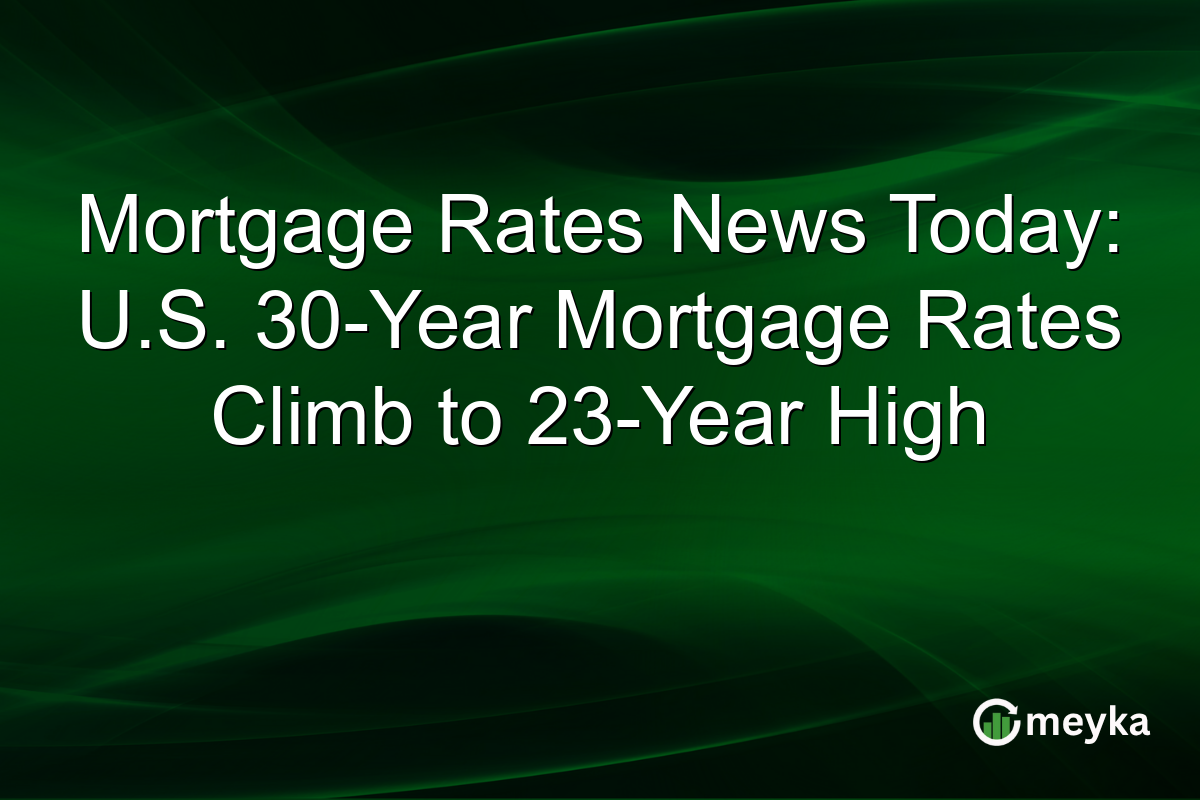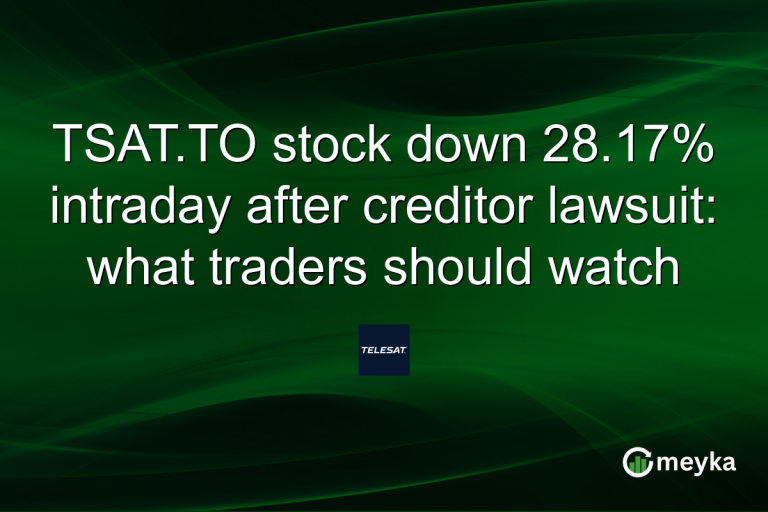Mortgage Rates News Today: U.S. 30-Year Mortgage Rates Climb to 23-Year High
Today, U.S. 30-year mortgage rates surged to 8.09%, their highest level since 2000. This significant increase, reported by the Mortgage Bankers Association and Freddie Mac, is shaking the foundations of the housing market. The strain on affordability is evident as home purchase applications hit a cycle low. This spike in rates is primarily driven by the Federal Reserve’s higher-for-longer policy, a move that tightens borrowing costs further.
The Impact of Rising 30-Year Mortgage Rates
The latest jump in 30-year mortgage rates highlights ongoing affordability challenges. As rates reach 8.09%, potential homebuyers face steeper monthly payments, reducing their purchasing power. According to Freddie Mac, the aggressive rate hikes reflect Federal Reserve actions aimed at curbing inflation. Unfortunately, these higher rates deter new buyers and lead to a significant drop in mortgage applications.
Additionally, the refinance market remains stagnant. Many homeowners are locked into loans with lower interest rates and find no benefit in refinancing at today’s higher rates. This situation adds pressure to the housing market, threatening stability. For more details, visit this update on CNBC.
Current Mortgage Rate Trends and Housing Volatility
Current mortgage rate trends show volatility in the U.S. housing market. Analysts warn of a potential decrease in housing demand as high interest rates discourage buyers. This climate of instability could lead to a decline in home values if buyer engagement continues to wane.
In 2025’s economic landscape, the ripple effect of these rate changes is palpable. While the Federal Reserve’s policies are trying to manage inflation, the cost of these adjustments is a reduction in both buyer demand and real estate market robustness. Read more at Yahoo Finance.
The Interest Rate Hike of 2025 and Market Reactions
The interest rate hike of 2025 has sparked a range of reactions. With rates at their peak since the turn of the millennium, both consumers and investors are reassessing strategies. Homeowners face tough decisions about selling or holding onto properties as refinancing becomes unattractive.
The broader real estate market is coping with this shock by progressively lowering home prices in certain areas, trying to balance deterrent interest rates with competitive pricing strategies. Analysts caution that continued high rates may further suppress demand, creating challenges for the industry. Insights are available at Reuters.
Final Thoughts
U.S. 30-year mortgage rates reaching 8.09% presents a challenging scenario for both buyers and the housing market. As affordability concerns mount, the rate hike accentuates the strain on the real estate sector brought by the Federal Reserve’s monetary policies. Whether these high rates will lead to a significant downturn in housing demand or force an adjustment in market strategies remains closely watched by analysts.
For those keeping a close eye on mortgage trends, tools like Meyka can provide real-time insights and predictive analytics to navigate these turbulent times. The road ahead is complex, and prospective buyers, as well as investors, need to stay informed on ongoing developments.
FAQs
Today, 30-year fixed mortgage rates have risen to 8.09%, marking the highest point since 2000. This increase is driven by the Federal Reserve’s efforts to manage inflation without damping economic growth too severely.
The 2025 interest rate hike significantly impacts homebuyers by increasing monthly mortgage payments. This discourages potential buyers and has led to a drop in home purchase applications, affecting overall housing market stability.
Rising mortgage rates contribute to decreased housing demand and potential volatility. As rates climb, housing affordability diminishes, leading analysts to warn of possible declines in home values and market instability.
Disclaimer:
This is for information only, not financial advice. Always do your research.






